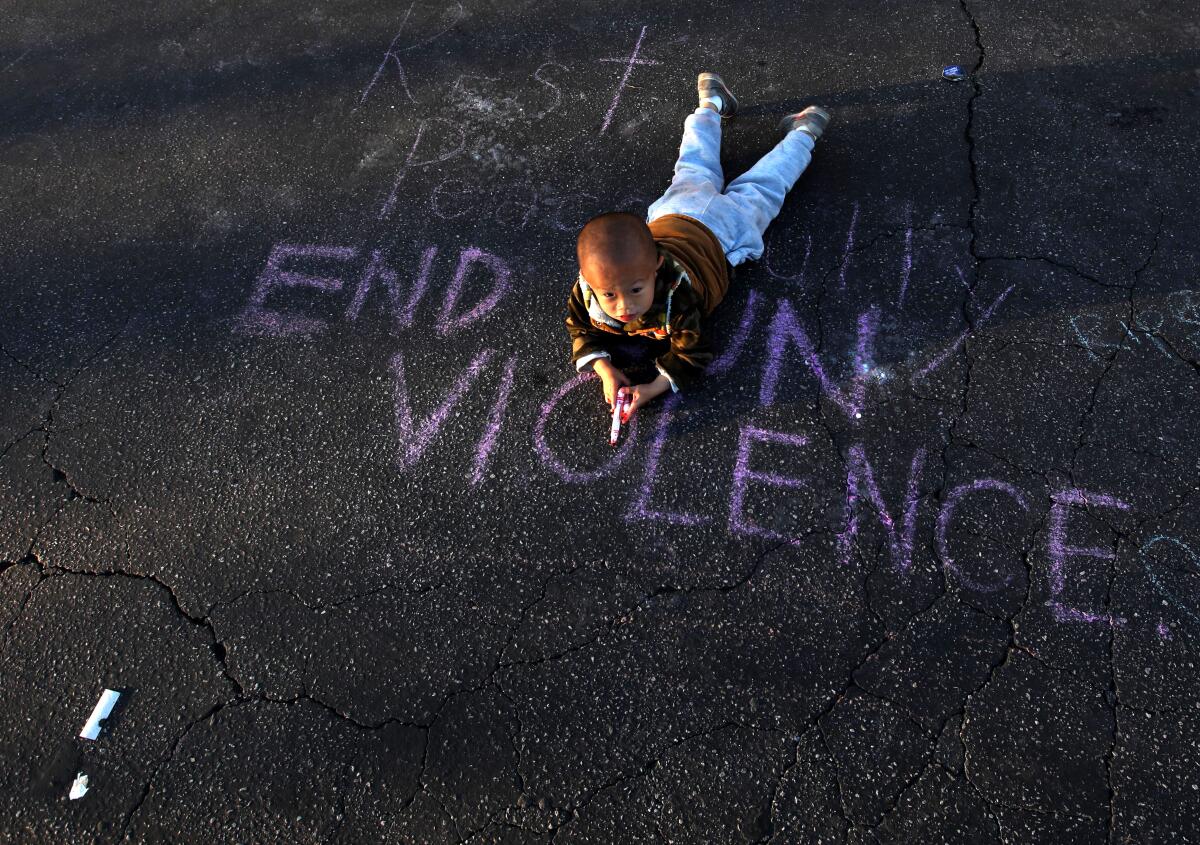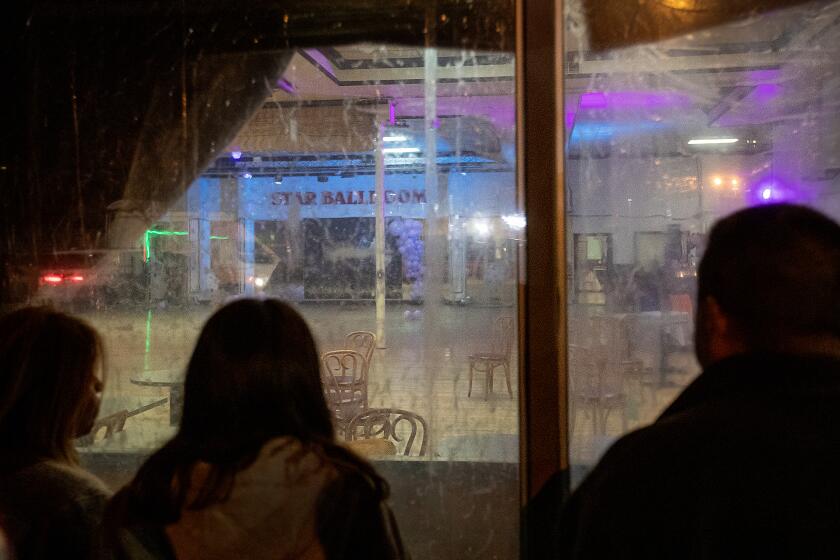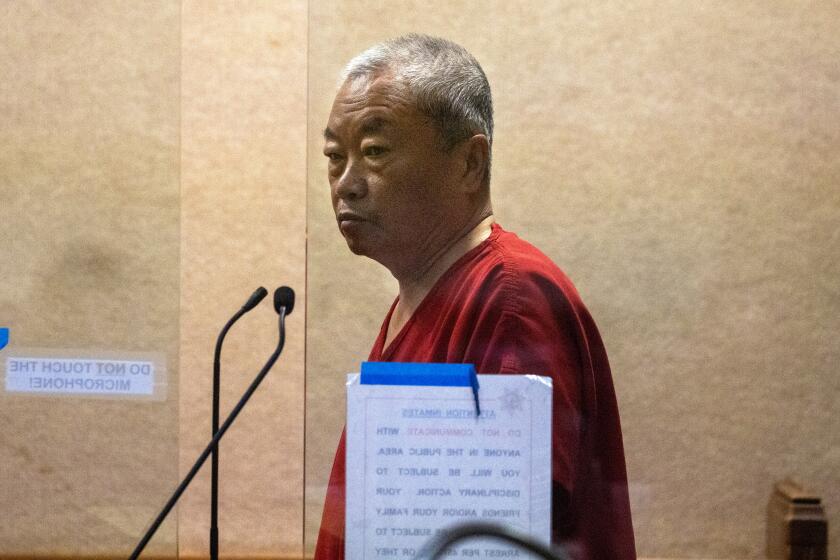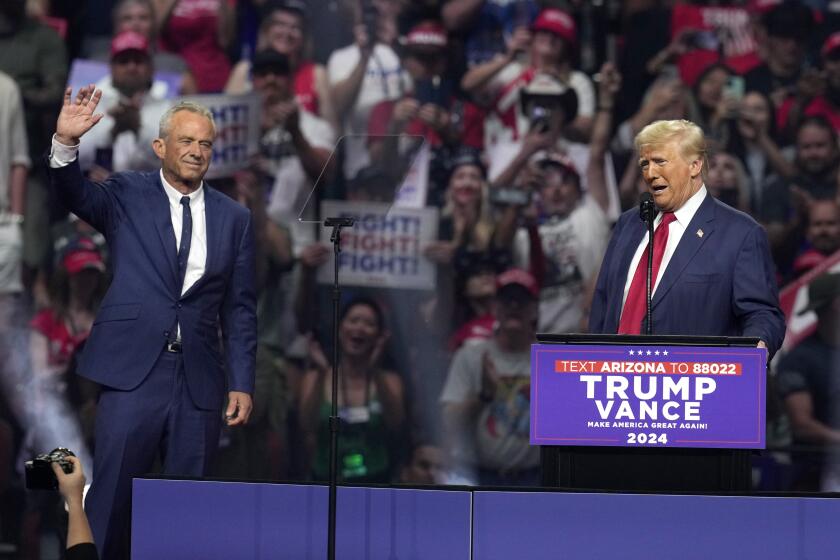Column: Will 19 dead in California alter the balance between your right to a gun and my right to live?

Individualism has been a defining and admirable American trait throughout this nation’s history on a vast, varied continent. But so has its opposite: communitarianism, collectivism — a focus on the common good, even if that means curbing some individuals’ liberty.
The two impulses aren’t mutually exclusive; they coexist, if in tension. In some periods, one impulse is more prominent than the other. When President Hoover’s reliance on what he called Americans’ “rugged individualism” proved woefully inadequate to the Great Depression, the nation turned to Franklin D. Roosevelt for the greatest burst of collective action ever to that point — the creation of a federal safety net that endured and expanded.
Our political parties have come to reflect the dichotomy. Republicans typically emphasize don’t-tread-on-me, small-government individualism, Democrats favor a ready governmental hand-up for the common good.
Opinion Columnist
Jackie Calmes
Jackie Calmes brings a critical eye to the national political scene. She has decades of experience covering the White House and Congress.
Since the Reagan era, however, a particularly strong strain of individualism — insistence on my rights regardless of the common good — has dominated in the nation’s public square. That’s been true even in times of Democratic governance, and amid bipartisan actions such as trillion-dollar tranches of pandemic relief. Initial collective action in the face of COVID-19, which to date has killed more than 1 million Americans, quickly gave way to protests. Millions more Americans opposed mask and vaccine mandates as infringements of their personal freedom, regardless of lives to be saved.
Yet no subject better illustrates the potency of American individualism, and how it can sometimes trump the common good, than the nation’s increasing — and increasingly deadly — fetishization of gun rights since the 1970s. The balance must be righted.
January isn’t even over and the nation has suffered 40 mass shootings in 2023, according to the Gun Violence Archive, including the three rampages in California in the last week that killed 19 people and injured 14 others. Of the 15 deadliest shootings in modern American history, dating to a 1966 massacre at the University of Texas in Austin, more than half, eight, have occurred just in the last decade.
We have more guns than people in the United States, many of them designed as weapons of war. Gun violence is now the leading cause of death for our children (it ranks no higher than fifth in comparable countries). Yet Congress is mostly paralyzed. Even in states like California that have gun-control laws, residents can easily bring in firearms from pro-gun jurisdictions — with a green light from a Supreme Court that in 2008 upended more than 200 years of jurisprudence to declare that the 2nd Amendment protected an individual’s right to bear arms, not, as previously held, the states’ right to maintain militias free of the feds’ interference.
Four days into the investigation, fragments are emerging about Huu Can Tran’s motives for killing 11 people and wounding nine others in a mass shooting in Monterey Park.
The Supreme Court’s conservative majority has been so extreme in its expansion of individuals’ gun rights that it’s gotten pushback from other conservatives, including columnist George Will and leading current and former federal jurists, among them J. Harvie Wilkinson III and J. Michael Luttig. Luttig suggested that the high court has upset the “delicate balance between the Second Amendment’s twin concerns for self-defense and public safety.”
In other words, the justices are favoring individualism over community.
Although the court’s decisions complicate finding a real solution to our epidemic of gun violence, we must try: The United States needs a comprehensive federal law to regulate guns and gun ownership. I know, I know — despite public opinion in support, it’s a political nonstarter. But again, we must try.
Few things are more certain than that there will be another gun tragedy soon in the U.S., at a school, a church, a store, a theater, a July 4th parade, a dance club. We’ll face the too-familiar cycle: Tragedy. Thoughts. Prayers.
We’re so anesthetized to gun violence that two Republican members of Congress, Reps. Matt Gaetz of Florida and Lauren Boebert of Colorado, proudly posed in a gun store brandishing big firearms for a tweet that circulated in the days coinciding with the Monterey Park, Half Moon Bay and Oakland murders. Gaetz and Boebert were promoting their latest pro-gun bill, in alliance with the American Firearms Assn., a gun group that considers the National Rifle Assn. too squishy. (AFA calls itself “America’s Never-Compromising, Hardest Hitting and ONLY No-Hold-Barred Defenders of the great Second Amendment!”)
Chunli Zhao told NBC Bay Area he carried out the two shootings that left seven of his co-workers dead, and claimed that he suffered years of bullying.
Boebert, you might recall, previously posed for a Christmas greeting with her sons, all holding rifles, as did Republican Rep. Thomas Massie of Kentucky with his family. This was just after a mass shooting at a Michigan school that killed four students and injured seven people. Such romanticizing of guns, especially by public officials, has to give a figurative license to the unhinged to lock and load.
Speaking of licensing, requiring the real thing for guns should be the lead item in a federal law to preempt our patchwork of state gun statutes. A process much like that for driver’s licenses — in-person applications, training and background information — would be “the most effective measure at reducing all forms of gun violence,” Daniel Webster, a professor with the Johns Hopkins Center for Gun Violence Solutions, told the Washington Post.
Johns Hopkins’ reseachers found that in 2020, states with strong handgun licensing laws had 56% fewer mass shootings and 67% fewer mass-shooting victims than other states.
But we’d need to do more: revive a nationwide assault weapons ban, limit magazine capacity, offer buybacks for newly illegal guns and ammo, require background checks and waiting periods for all gun purchases, and mandate safe-storage rules.
To achieve that, however, we first need a strengthened sense of communitarianism, a national consensus across red states as well as blue ones that when it comes to firearms, the individual must give ground for the common good. Our lives depend on it.
More to Read
A cure for the common opinion
Get thought-provoking perspectives with our weekly newsletter.
You may occasionally receive promotional content from the Los Angeles Times.














